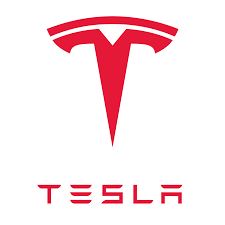$TSLA $BYDDF $NIO
#Tesla #EV #ChinaSales #ElectricVehicles #BYD #NIO #AutoMarket #ChinaEconomy #ExportTariffs #USMarket #EUTrade #AutoCompetition
Tesla achieved a significant milestone in 2024, posting record-breaking sales in the highly competitive Chinese market. The company capitalized on its manufacturing capabilities in Shanghai and leveraged strong consumer demand for electric vehicles (EVs) in the world’s largest auto market. However, despite this recent success, the road ahead appears fraught with challenges. Chinese automakers, buoyed by years of government subsidies and advances in EV technology, are gaining momentum. Companies like BYD and NIO have rapidly expanded their product offerings to cover a range of price points, creating formidable competition for Tesla. Furthermore, the U.S. and European Union have imposed hefty tariffs on vehicle imports, pushing Chinese automakers to focus more on their domestic market, intensifying the fight for market share within China.
Tesla’s ability to thrive in the Chinese market has historically been one of its key growth pillars, contributing significantly to its earnings. However, the competitive landscape is rapidly evolving. BYD recently overtook Tesla in global EV shipments, highlighting the increasing dominance of Chinese homegrown brands. Additionally, companies like NIO continue to lure customers by offering advanced battery-swapping technology and other groundbreaking innovations. Analysts are concerned that Tesla’s relatively higher price points and less frequent updates to its product lineup may weaken its ability to compete effectively in China. Tesla’s response to this competition, including price cuts, could erode profit margins, a factor that investors are paying close attention to as the company reports quarterly earnings.
Another significant headwind for Tesla in 2024 is the shifting geopolitical landscape. New export tariffs imposed by the U.S. and EU on Chinese-manufactured vehicles have disrupted global EV trade. While these tariffs were designed to limit China’s expansion into Western auto markets, they are, paradoxically, strengthening Chinese automakers’ focus on dominating their local market. This poses a dual threat for Tesla, which not only has to contend with intensified competition in China but also relies on its Shanghai Gigafactory to supply vehicles to Europe and other international markets. Securing an edge in the Chinese market, while navigating these geopolitical complexities, will be critical for Tesla’s growth trajectory moving forward.
On the investor side, Tesla’s stock price may experience heightened volatility in the coming months. Although the record-breaking sales from China in 2024 are an undeniable positive, forward-looking concerns could weigh heavily on investor sentiment. Much of Tesla’s valuation is tied to its future growth potential as opposed to immediate profitability, and increasing competition along with geopolitical uncertainties might temper these expectations. Meanwhile, shares of Chinese competitors like BYD and NIO stand to benefit as investors consider alternative EV plays with growth potential in both domestic and international markets. Ultimately, the market will be watching how Tesla navigates these challenges in a rapidly changing environment, as the outcomes could significantly shape the competitive dynamics of the global EV industry.











Comments are closed.